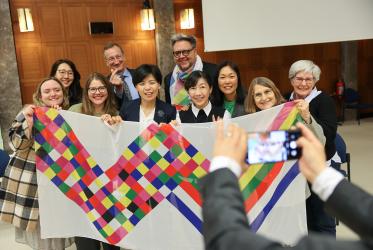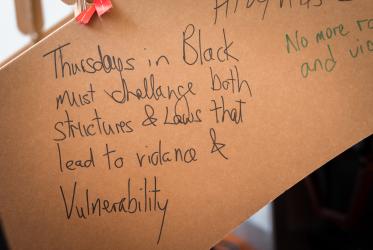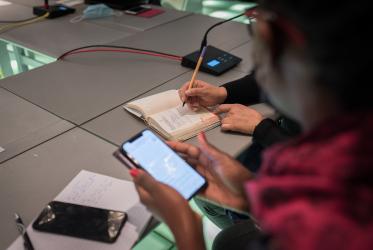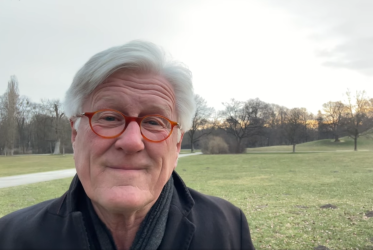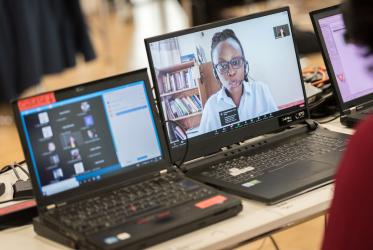Displaying 41 - 60 of 554
23 June 2023
WCC moderator shares International Women’s Day message
08 March 2023
WCC to participate in Commission on the Status of Women
02 March 2023
On Valentine’s Day, WCC shares message “Love Heals, Not Hurts”
09 February 2023
HIV and AIDS Civil Society Networks and the Faith Sector
Lessons Learnt from Strategic Engagement in India, Dominican Republic, Indonesia, and Jamaica
31 January 2023
Webinar to offer practical tools to root out gender cyberviolence
06 December 2022

